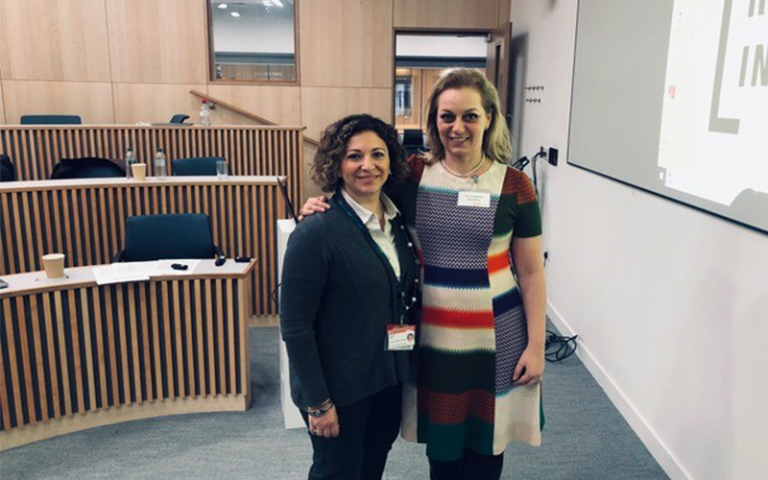Delegates from Italy visit BREI through MSc Healthcare Facilities
2 March 2020
The theme of the day was salutogenic environments: non-pharmacological interventions for better health. This workshop was part of a broader understanding to non-pharmacological aspects to health.

The workshop kick-started by Dr Anastasia Kalea (Division of Medicine) and Dr Chrysikou presenting the UCL Cities partnerships Programme in Rome. Their interest was to explore non-pharmacological interventions for better health with the focus on the impact environment has on health, well-being and disease treatments.
Marc Sansom (Director of SALUS Global Knowledge Exchange) discussed the need to advocate design as a tool for change to improve planetary health, emphasising the need for sustainable growth and agriculture.
Professor Fransesco Ferrini (Dean of the School of Agricultural Sciences of the University of Florence) presented the lack of greenery in cities, an assessment of the impact of green areas on public health indicators and the need for residential green spaces.
Professor Paola Rizzi (Università degli Studi dell’Aquila) shared her experience in disaster management in Fukusima nuclear disaster and demonstrated ideas and lessons that were learnt on risk reduction design, disaster mitigations & urban design. She presented her projects on ‘Divers city’ a place where one can build relationships and knowledge networks relevant to the project organisation in all its aspects. Dr Neratzia Tzortzi (Associate Professor from Politecnico di Milano) and Cristina Musacchio (INU – Instituto Nationale di Urbanistica) discussed the impact biophilic indoor design has on stress and anxiety, and the effect of healing gardens in hospitals and care settings which were demonstrated through several case studies.
Through the afternoon session, Christopher Shaw (Architects for Health) displayed his thoughts on how design can enable the enhancement of clinical outputs and the human experience of medical care.
The day came to a close with students presenting their projects on medical city and receiving feedback from academics and industry representatives from UK and Rome.
 Close
Close

